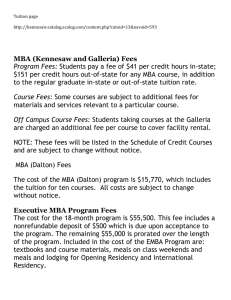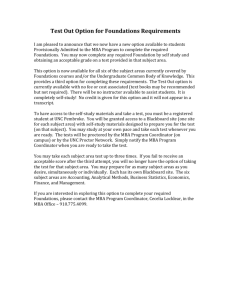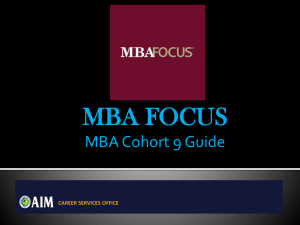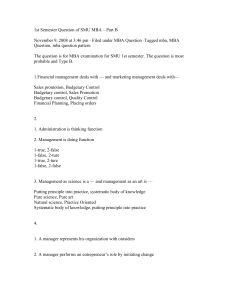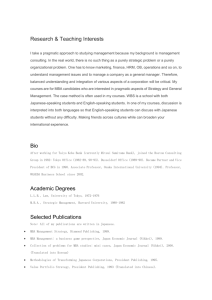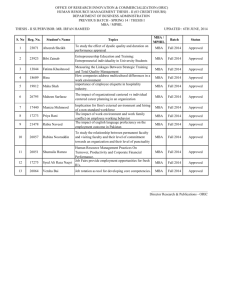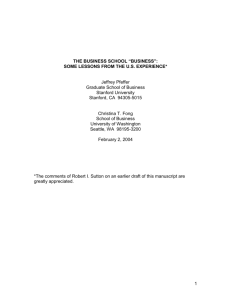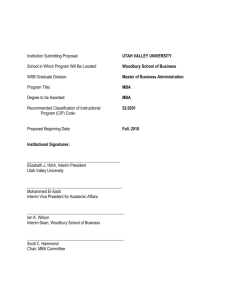ECN 3890
advertisement
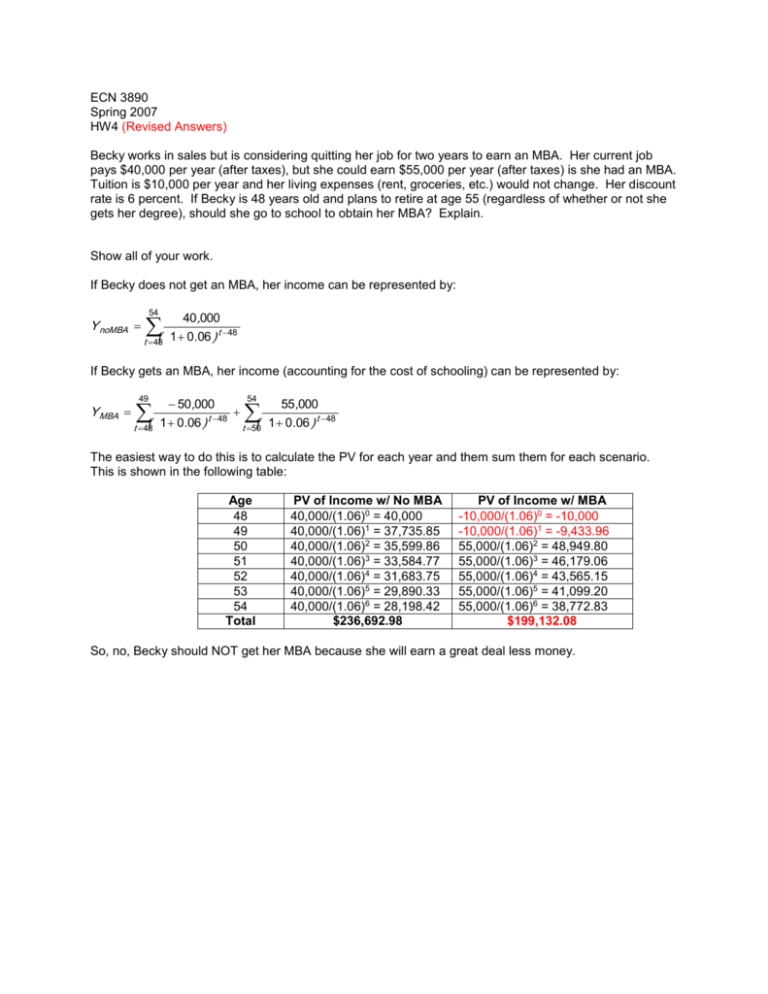
ECN 3890 Spring 2007 HW4 (Revised Answers) Becky works in sales but is considering quitting her job for two years to earn an MBA. Her current job pays $40,000 per year (after taxes), but she could earn $55,000 per year (after taxes) is she had an MBA. Tuition is $10,000 per year and her living expenses (rent, groceries, etc.) would not change. Her discount rate is 6 percent. If Becky is 48 years old and plans to retire at age 55 (regardless of whether or not she gets her degree), should she go to school to obtain her MBA? Explain. Show all of your work. If Becky does not get an MBA, her income can be represented by: Y noMBA 54 t ( 48 40,000 1 0.06 ) t 48 If Becky gets an MBA, her income (accounting for the cost of schooling) can be represented by: Y MBA 49 t ( 48 54 50,000 1 0.06 ) t 48 t ( 50 55,000 1 0.06 ) t 48 The easiest way to do this is to calculate the PV for each year and them sum them for each scenario. This is shown in the following table: Age 48 49 50 51 52 53 54 Total PV of Income w/ No MBA 40,000/(1.06)0 = 40,000 40,000/(1.06)1 = 37,735.85 40,000/(1.06)2 = 35,599.86 40,000/(1.06)3 = 33,584.77 40,000/(1.06)4 = 31,683.75 40,000/(1.06)5 = 29,890.33 40,000/(1.06)6 = 28,198.42 $236,692.98 PV of Income w/ MBA -10,000/(1.06)0 = -10,000 -10,000/(1.06)1 = -9,433.96 55,000/(1.06)2 = 48,949.80 55,000/(1.06)3 = 46,179.06 55,000/(1.06)4 = 43,565.15 55,000/(1.06)5 = 41,099.20 55,000/(1.06)6 = 38,772.83 $199,132.08 So, no, Becky should NOT get her MBA because she will earn a great deal less money.


